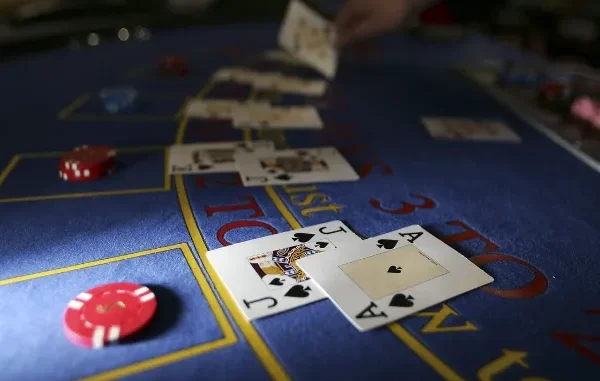
The nuanced art of online poker isn’t just about having a solid grasp of the game’s mechanics. It’s equally about understanding the digital tells and patterns of your opponents. The virtual table strips away the physical aspect of poker, challenging players to adapt and discover new ways to read their rivals. This guide merges structured advice with actionable strategies, giving you the tools to navigate the complexities of online play.
Strategies for Decoding Online Poker Opponents
Observation is Key
The foundation of decoding opponents in online poker lies in observation. Pay close attention to how your Roll XO Casino opponents play their hands. Do they raise aggressively preflop or only when they have a strong hand? Are they quick to fold when faced with significant bets, or do they tend to call down to the river? These observations can provide valuable clues about their playing style and hand strength.
Spotting Betting Patterns
Whatever game you play, be it poker or Slots Peak games, you usually tend to place bet according to certain principles or patterns. These betting patterns are of great importance to poker. They can reveal a wealth of information about your opponents’ hands. Keep an eye out for consistent bet sizing, as well as sudden deviations from their usual patterns.
For example, a player who typically bets small with weak hands but suddenly makes a large bet could be signaling strength. Conversely, a sudden decrease in betting size might indicate uncertainty or a weaker hand.
Analyzing Timing Tells
In online poker, timing can be a subtle yet telling indicator of a player’s hand strength. Take note of how long it takes your opponents to make their decisions. A quick call or raise may signify confidence, while a prolonged pause could suggest indecision or deliberation over a difficult hand.
Additionally, pay attention to any sudden changes in timing. These could signal a shift in strategy or hand strength.
Deciphering Chat Behavior
While chat behavior may seem insignificant in the grand scheme of online poker, it can offer valuable insights into your opponents’ mindset. Keep an eye on the chat box for any emotional or revealing messages from your opponents.
A player who suddenly becomes chatty after a big win may be feeling confident and overconfident. Conversely, a player who goes silent after a series of losses may be on tilt and prone to making rash decisions.
Using HUD Data
Many online poker platforms offer HUDs (Heads-Up Displays) that provide real-time statistics on your opponents’ playing tendencies. Take advantage of this valuable tool to gather additional insights into your opponents’ gameplay.
Look for patterns in their VPIP (Voluntarily Put Money in Pot) percentage, aggression frequency, and post-flop tendencies. This data can help you tailor your strategy to exploit your opponents’ weaknesses effectively.
Adapting to Player Types
In online poker, players can generally be categorized into various player types, such as tight-aggressive (TAG), loose-aggressive (LAG), tight-passive, and loose-passive. Adapt your strategy accordingly based on gamblers’ playing styles.
Against aggressive players, tighten up your starting hand selection and look for opportunities to trap them with strong hands. Against passive players, be more aggressive with your betting and bluffing to exploit their tendency to fold.
Understanding the Mind Game
Understanding the psychology behind your opponents’ actions can provide invaluable insights into their decision-making processes and help you exploit their weaknesses effectively.
Recognizing Tilt
One of the most common psychological phenomena in poker is tilt – a state of emotional frustration or anger that can impair decision-making and lead to reckless play. Learning to recognize when your opponents are on tilt can be a lucrative skill in online poker.
Look for signs of irrational behavior, such as sudden aggression, excessive betting, or emotional outbursts in the chat box. When you identify a player on tilt, capitalize on their emotional vulnerability by playing more cautiously and capitalizing on their mistakes.
The Power of Mind Games
In online poker, the psychological aspect extends beyond just your opponents’ behavior to include your mindset and demeanor. Maintaining a calm and composed demeanor at the virtual table can be a powerful tool for manipulating your opponents’ perceptions and gaining an edge.
Conversely, allowing your emotions to dictate your actions can make you more predictable and exploitable. Practice mindfulness and emotional control to stay focused and make rational decisions even in the face of adversity.
Building a Poker Persona
Crafting a poker persona can also be a strategic tool for influencing your opponents’ perceptions of you at the table. Whether you choose to portray yourself as a fearless aggressor or a cautious strategist, consistency is key.
By cultivating a consistent image and sticking to your chosen persona, you can sow doubt and uncertainty in your opponents’ minds, making it more challenging for them to read your intentions accurately.
Last Word
By mastering the ability to read digital tells and adjust your strategy to exploit them, you position yourself not just as a player of the game but as a student of your opponents. Remember, in the virtual world of poker, your greatest asset is your ability to decode the unseen, turning subtle hints into actionable strategies for victory.

Leave a Reply